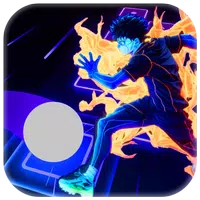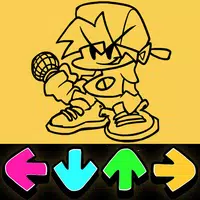The God of War series has been a mainstay across four generations of PlayStation consoles, captivating players since Kratos' journey began in 2005. Few could have predicted the evolution of this vengeful god over two decades. While many franchises struggle to remain relevant, God of War has thrived through its willingness to evolve. The most pivotal transformation came with the 2018 reboot, which shifted Kratos from the world of Ancient Greece to the realm of Norse mythology. This change not only altered the series' setting but also its gameplay and narrative style. However, even before this acclaimed reboot, Sony Santa Monica introduced numerous smaller yet significant changes that kept the series alive and vibrant.
The key to God of War's future success lies in continuous reinvention. When the series transitioned to Norse mythology, director Cory Barlog expressed his vision of exploring other mythologies like the Egyptian and Mayan eras. Recent rumors of an Egyptian setting have reignited fan excitement, fueled by the rich and distinct culture of Ancient Egypt. Yet, a new setting alone isn't enough; the series must continue to innovate as it did when transitioning from the successful Greek trilogy to the critically acclaimed Norse games.
 The series has always embraced change with each installment. The original Greek trilogy evolved over a decade, refining its hack and slash mechanics and reaching a peak with the release of God of War 3 on the PlayStation 3. This final chapter introduced an enhanced magic system that complemented the melee combat, alongside a greater variety of challenging enemies. The transition to the PS3 allowed for new camera angles, showcasing the game's advanced graphics in 2010.
The series has always embraced change with each installment. The original Greek trilogy evolved over a decade, refining its hack and slash mechanics and reaching a peak with the release of God of War 3 on the PlayStation 3. This final chapter introduced an enhanced magic system that complemented the melee combat, alongside a greater variety of challenging enemies. The transition to the PS3 allowed for new camera angles, showcasing the game's advanced graphics in 2010.
The 2018 reboot, while groundbreaking, left behind some elements of the Greek trilogy. The original games included extensive platforming and puzzle-solving, which were minimized in the Norse games due to changes in camera perspective. However, puzzles remained but were adapted to suit the new adventure-focused design.
In the Valhalla DLC for God of War Ragnarök, the series revisited its roots. The roguelike format brought back the battle arenas from the Greek games, reimagined for the Norse setting. This mechanic, combined with the narrative focus on Kratos confronting his past, brought the series full circle.
The Norse games introduced numerous new elements, including the Leviathan Axe's unique throwing mechanics, a parry system enabled by various shields, and in Ragnarök, a magical spear for faster, explosive attacks. These additions facilitated exploration and combat across the diverse Nine Realms, each with unique foes and environments.
 While gameplay mechanics are crucial, the storytelling in the Norse duology marks a significant departure from the Greek trilogy. The new games delve into Kratos' emotional journey, exploring his grief over his late wife and his complex relationship with his son, Atreus. This emotional depth, a stark contrast to the more straightforward narrative of the original trilogy, has been pivotal to the Norse era's success.
While gameplay mechanics are crucial, the storytelling in the Norse duology marks a significant departure from the Greek trilogy. The new games delve into Kratos' emotional journey, exploring his grief over his late wife and his complex relationship with his son, Atreus. This emotional depth, a stark contrast to the more straightforward narrative of the original trilogy, has been pivotal to the Norse era's success.
The shift in both gameplay and narrative in the Norse games reflects a broader approach to franchise development. Sony Santa Monica views these games not as sequels but as continuations of Kratos' journey. This mindset should guide future installments, ensuring that they build upon the series' core strengths.
However, reinvention alone does not guarantee success, as seen with the Assassin's Creed series. Despite frequent changes in setting and gameplay, Assassin's Creed has struggled to maintain the same level of fan devotion as God of War. The shift to an open-world RPG with Assassin's Creed Origins diluted the series' focus on the Assassin's guild and its narrative cohesion. The subsequent games have been criticized for their increasing size and deviation from the series' stealth roots, leading to mixed reactions from fans.
Assassin's Creed has attempted to course-correct with titles like Assassin's Creed Mirage, which returns to the series' Middle Eastern roots and shorter, more focused gameplay. The upcoming Assassin's Creed Shadows continues this trend by emphasizing stealth gameplay through the character Naoe.
The varied success of Assassin's Creed's transformations underscores the importance of maintaining a series' core identity. God of War has managed this balance by preserving the essence of Kratos and the series' combat while introducing new elements that enhance the experience. Future games, whether set in Egypt or another mythology, must continue this approach, building upon the successful foundation of combat while deepening the narrative focus on Kratos' character development.
Regardless of the setting, the next God of War must uphold the high standards set by its predecessors. The Norse games elevated the series through their storytelling, showcasing Kratos' transformation from a rage-fueled warrior to a complex father and leader. Future installments must continue to prioritize this narrative strength while introducing bold new changes to ensure the series remains at the forefront of gaming excellence.






